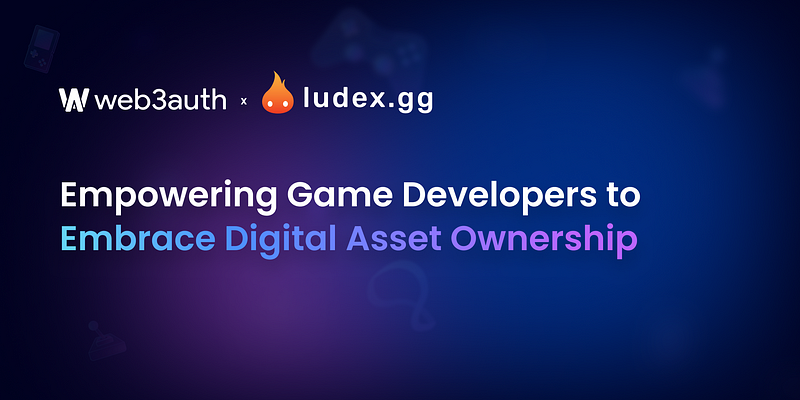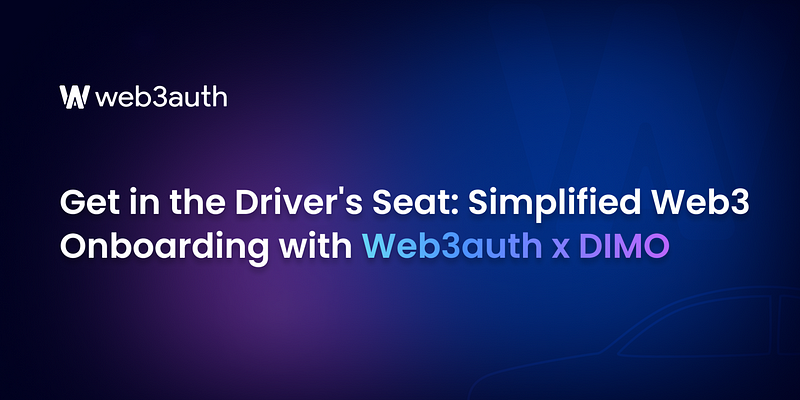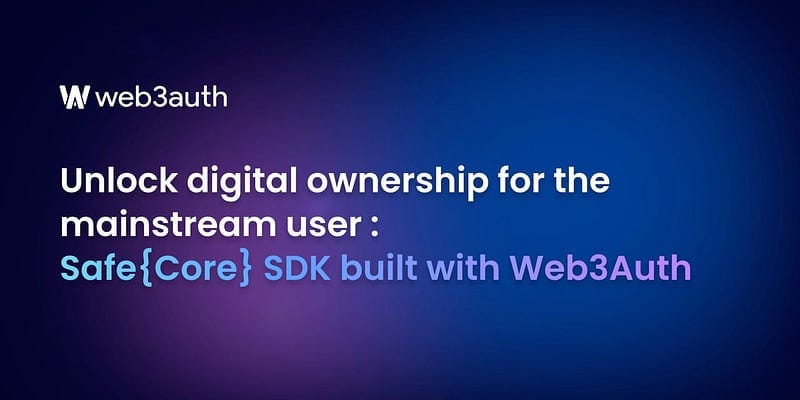As the Web3 ecosystem continues to grow, game developers (GDs) are finding it challenging to add Web3 solutions to their games. It is a complicated, time-consuming, and expensive process that requires a sharp learning curve for current users. This is where Web3Auth and Ludex partnership comes in.
The partnership lowers the usually high barriers to entry associated with the Web3 space and removes the friction of blockchain interaction for both developers and end users. With tools like instant wallet creation, in-game signing, multichain seamless onboarding, frictionless blockchain interaction, and integrations with Playfab and Firebase, the use cases for Web3Auth x Ludex by GDs are endless.
One of the key tools Ludex builds on is the Web2 native login for Web3 via Web3Auth. With this unique tool, GDs can craft a Web2 login experience for their games, creating non-custodial user wallets for multiple blockchains such as Solana, NEAR, EVM, Sui, and Aptos. By removing the entry barrier to Web3 and eliminating friction for end-users, GDs do not need tutorials educating players on wallets and blockchains. This makes the process painless for end-users, resulting in a native onboarding experience.
Our partnership with Ludex.gg amplifies the ability of game developers to build, own, and supercharge their gaming communities. There are several key benefits:
- By utilizing Web3Auth’s tools, GDs no longer need to educate players on building the Web3 infrastructure for player access. They don’t need an entire how-to page on making a wallet, how to link their wallet, or how to save their seed phrase as these things inevitably scare away the Web2 natives.
- Secondly, GDs do not have to waste resources building a Web3 login and wallet system. They can pour their time and resources into building an irresistible game.
- Thirdly, GDs have the ability to integrate multi-chain wallet solutions instead of gating to a singular chain. They can also hand off security concerns, such as how to make smart contracts secure and not hold consumer funds. Web2 users can log in with a familiar SSO experience, while Web3 users can still connect with their preferred wallet method.
Digital asset ownership should not be shied away from but deeply embraced. GDs have figured out how to build a beautiful game. From the story to the art to the in-game mechanics and more, the secret sauce is there. The paradigm shift is “player economy.” The idea of digital asset ownership is taking hold, and the ability to offer this to end-users will ultimately be a deciding factor when choosing between two comparable games. The narrative of Web3 mass adoption has generally put the focus in the wrong place. “Web3 needs to make a great game.” NO, Web2 needs to unleash the power of digital asset ownership. As this change takes hold, the connection between GD and end-user solidifies, and the retention and long-term ROI becomes undeniable.
With the Web3Auth x Ludex partnership, we offer many value-driven features for GDs building Web3 games. Our tools, such as in-game signing, multichain seamless onboarding, frictionless blockchain interaction, and integrations with Playfab and Firebase, allow GDs to unlock the full potential of Web3. Our partnership with Ludex.gg further solidifies our commitment to lowering the barriers to entry and removing friction for both developers and end-users.
As we continue our mission to simplify the wallet infrastructure for everyone, we are excited about the depth of what can be accomplished with these tools in the gaming industry — both for GDs and users.
Check out this demo video showing a smooth web2 login, wallet setup, and in-game on-chain transactions utilizing Web3auth and Ludex tools.
Try it out yourself at https://web3auth.io/docs/sdk/unity/ and ‘build, own, & supercharge your gaming community!’





